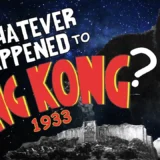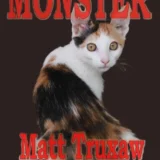
I was in graduate school for astronomy when I started taking writing seriously. The first stories I wrote that were any good and started to sell tended to be fantasy or science fiction with horror elements. I had a really hard time writing hard science fiction even though I was at that point a budding young scientist well aware of how science worked and all the fantastic things in the universe.
It took me some time to understand this issue and work through it, but it boiled down to this: Scientists develop a hypothesis and then think very hard about what’s wrong with it, while science fiction writers develop an interesting idea and then think very hard about how to make it work. The two ways of thinking are not the most easily compatible.
Basically when I’d come up with a premise for a science fiction story that relied on astronomy or took place in space, I’d trigger my scientist training and start picking apart the problems with the premise until it seemed like the worst idea in the world. What I needed to learn to do was to engage my knowledge and creativity to overcome the problems and see the possibilities.
Science is about reality, and understanding the universe we live in. Good science fiction is about reality, too, but seeing the most interesting and sometimes improbable, but not impossible, possibilities contained within our universe.
Let me provide a few real-life examples from our own wacky world to illustrate the difference.
Cryptozoology. We haven’t discovered every animal on Earth, and we for sure haven’t even discovered every large animal on Earth. There are new ape populations still being discovered, and almost certainly large unknown animals in the deep oceans. Most scientists dismiss out of hand bigfoot, and many dismiss the yeti. There is some effort among scientists to search for orang pendek, and the discovery of the probably extinct so-called hobbits opens a lot of possibilities. The thing is, bigfoot and yeti are merely improbable based on generalities, and not impossible. Without compelling evidence, it’s not inappropriate for a scientist to dismiss them, although it may be close-minded. A science fiction writers job, however, is to figure out how to make their existence plausible, to look at how it’s possible for a population of large hominids to vanish into the woods without being spotted very often, to determine what capabilities such anmials must have to stay hidden in close proximity to people.
UFOs. I have heard some scientists and skeptics casually dismiss the possibility that aliens are visiting us here on Earth simply on the basis of the vast time and energy required to cross interstellar space. The time and energy required makes it difficult but not impossible. What if aliens are much longer lived than humans? Or immortal? Or use machines? Or hibernate? What if they control much larger energy resources and are capable of building craft reaching relativistic speeds that permit time dilation? What if they understand scientific concepts that are like magic to us, the way a cell phone would be magic to a caveman?
In the world of everyday people on these topics above, we have hardcore skeptics who are the equilvalent of scientists, shooting everything down and being negative about things like bigfoot and UFOs. In a lot of cases, but certainly not all if they’re dealing with the improbable rather than the impossible, they’ll be right. We also have true believers, conspiracy theorists, new age seekers, and the like, who are in some ways the equalivalent of the science fiction writer. These are people finding ways to believe in the improbable without compelling iron-clad proof, and sometimes the impossible or just plain silly, too.
I am a scientist and rational about the world and generally compartmentalize the science fiction from real life. I more identify with skeptics than tin-foil hat conspiricists who believe that bigfoot is an alien who rides in UFOs. Still, I enjoy having a sense of wonder about the world we live in. We don’t know everything about it, and mysteries yet abound. Sometimes I hold skeptics and scientists in scorn who flat out deny something unlikely but possible, and celebrate the true believers making plaster casts of big footprints they found in the woods or calling up witnesses to ask them about the strange lights they saw in the sky. They’re thinking like science fiction writers, and they’re fans of the interesting and improbable. Even if I can’t always respect everything in their approach and some individuals are crazy, generally speaking, I like those people. They see possibility. They see wonder. And they say yes to them.
We all need to cultivate our inner skeptics, but temper them with eyes capable of seeing wonder.










Recent Comments